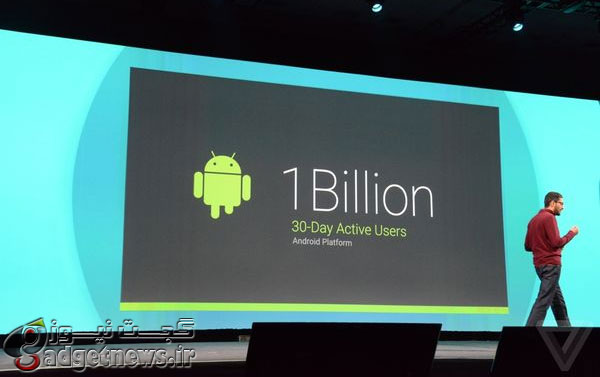
همانطور که اطلاع داريد بزرگترین همایش گوگل بهنام کنفرانس Google I/O شب گذشته در سانفرانسیسکو برگذار شد.رئیس بخش اندروید گوگل Sundar Pichai این همایش را با آمار خیرهکنندهای در مورد تعداد کاربران اندروید آغاز کرد. او بیان کرد که کاربران آنچنان به اندروید روی آوردهاند که اکنون بیش از یک میلیارد کاربر فعال اندروید در جهان وجود دارد.
Pichai این افراد را کاربران ۳۰ روزه مینامد به این معنی که در ۳۰ روز گذشته حداقل یکبار از دستگاه اندرویدشان استفاده کردهاند. این کاربران مجموعاً در طول روز ۱.۵ تریلیارد قدم برمیدارند و گوشیهایشان را ۱۰۰ میلیارد بار در روز چک میکنند. این آمار به این معنی است که اندروید تأثیر بسیار زیادی در زندگی مردم جهان دارد.

تبلتهای اندروید نیز ۶۲ درصد بازار تبلتها را در دست گرفتهاند.
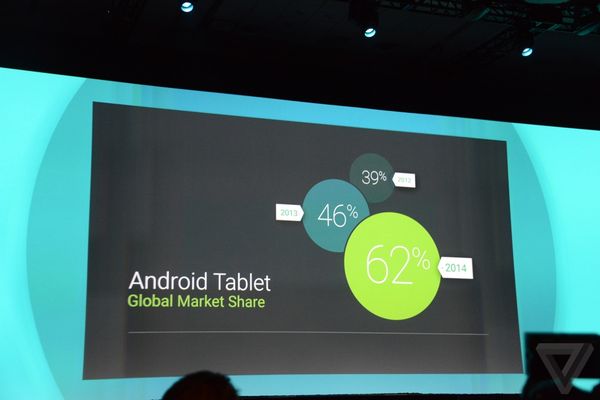
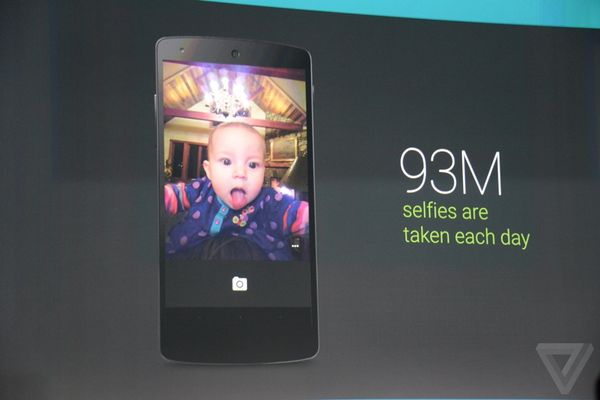

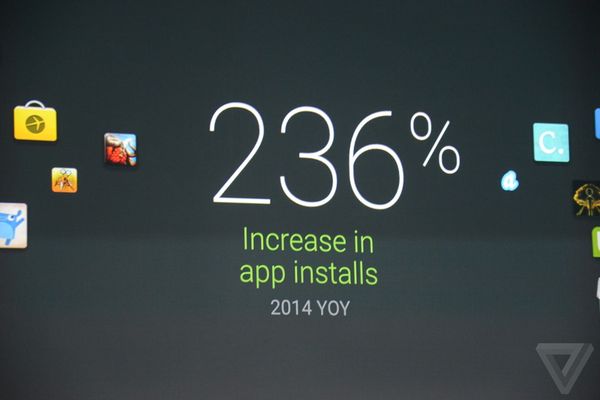
البته گوگل به این ۱ میلیارد کاربر اکتفا نکرده و با پلتفرم Android One میخواهد ۵ میلیارد کاربر جدید پیدا کند. هماکنون سه شرکت هندی Micromax, Karbonn و Spice با گوگل در این پروژه همکاری میکنند. Android One به شرکتهای تولیدکنندهٔ گوشیهای اندروید کمک میکند تا با هزینهٔ کمتر گوشیهای باکیفیتتر بسازند. Android One یک مدل گوشی مرجع (پلتفرم سختافزاری و نرمافزاری مرجع) است که باوجودآن در زمان و هزینهٔ سازندگان برای انتخاب سختافزار و نرمافزار مناسب برای گوشیهای جدید صرفهجویی میشود. به عبارتی سازندگان راحتتر و با هزینهٔ کمتر از قبل گوشی تولید میکنند.
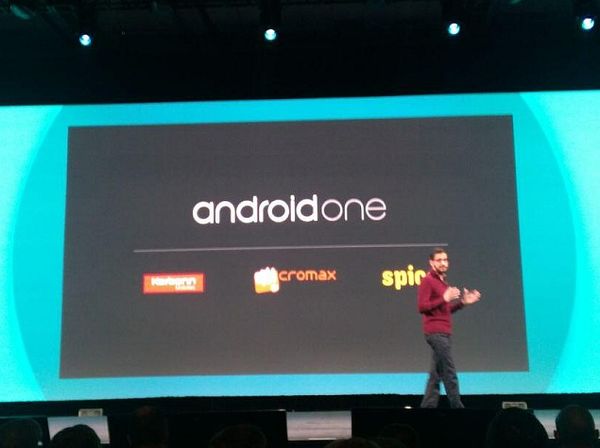
Pichai یک گوشی Android One از شرکت Micromax بر روی صحنه نمایش داد که دو سیمکارته است، صفحهٔ نمایش ۴.۵ اینچ، رادیو، و قابلیت پشتیبانی از کارت حافظهٔ microSD دارد. مهمتر از همه اینکه قیمت این گوشی کمتر از ۱۰۰ دلار است.
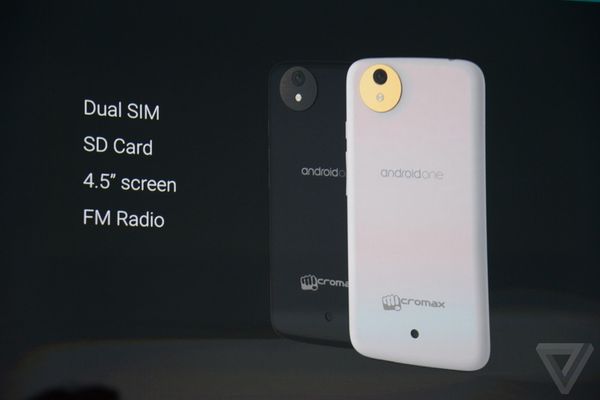
Pichai اعلام کرد بااینکه به استفاده از گوشیهای تراز اول اندروید عادت کرده، مدتی است که از یک گوشی Android One استفاده میکند و تحت تأثیر کارایی آن قرارگرفته است.
گوشیهای Android One دارای سیستمعامل استوک اندروید (مثل گوشیهای Nexus) خواهند بود. به خاطر هماهنگی سختافزار و نرمافزار این گوشیها، انتشار بهروزرسانی بسیار راحتتر از قبل خواهد بود. چون احتیاج نیست بود برای هرکدام از این گوشیها بهروزرسانی کاملاً متفاوتی منتشر شود.
منبع : engadget
Free-falling product demos and Rube Goldberg multimedia installations aside, there’s always a level of predictability to an opening day keynote. And Google I/O 2014 is no exception. Like clockwork, SVP Sundar Pichai took to the stage in San Francisco this morning to tick off the company’s latest accomplishments. He started off by touting one of the company’s biggest strengths: Android. According to Pichai, Google now has over 1 billion active users (that’s as of the last 30 days) on the OS.
Google’s apparently opted to track 30-day usage as opposed to year-over-year numbers as in the past. That said, last year, the company boasted 900 million Android activations, up from 400 million the year before. We likely won’t get a direct comparison due to the change in tracking, but even with the numbers we have, it’s clear Android is still the dominant mobile platform. During its WWDC 2014 keynote earlier this month, Apple’s Tim Cook announced the company had reached 800 million iOS devices to date, fewer than Google’s Android activation numbers from the year prior.
Google now has over 1 billion active Android users.
Continuing the theme of unconventional stat tracking, Pichai championed the strength of the platform saying Android users send 20 billion text messages each day and 93 million selfies. What’s more, those self-absorbed phone holders apparently take 1.5 trillion steps each day, and check their handsets a total of 100 billion times every 24 hours.
It’s no secret that Google’s OS is far and away the biggest stake holder in the smartphone game — according to Strategy Analytics, it owned 78.9 percent of the market compared to Apple’s 15.5 in 2013. As Pichai points out, Android is still at the top of the tablet heap with 62 percent of the market, up from 46 percent in 2013 and 39 percent in 2012. According to Gartner, Android came out ahead of iOS in 2013 for the first time with 62 percent of the tablet market, compared to Apple’s 36 percent. Pichai didn’t reveal any new app-download numbers, but pointed to a 236 percent increase in tablet app downloads. As of May 15th of last year, Android had reached 48 billion app downloads. That same day, Apple boasted its 50 billionth.
 گجت نیوز آخرین اخبار تکنولوژی، علم و خودرو
گجت نیوز آخرین اخبار تکنولوژی، علم و خودرو 




